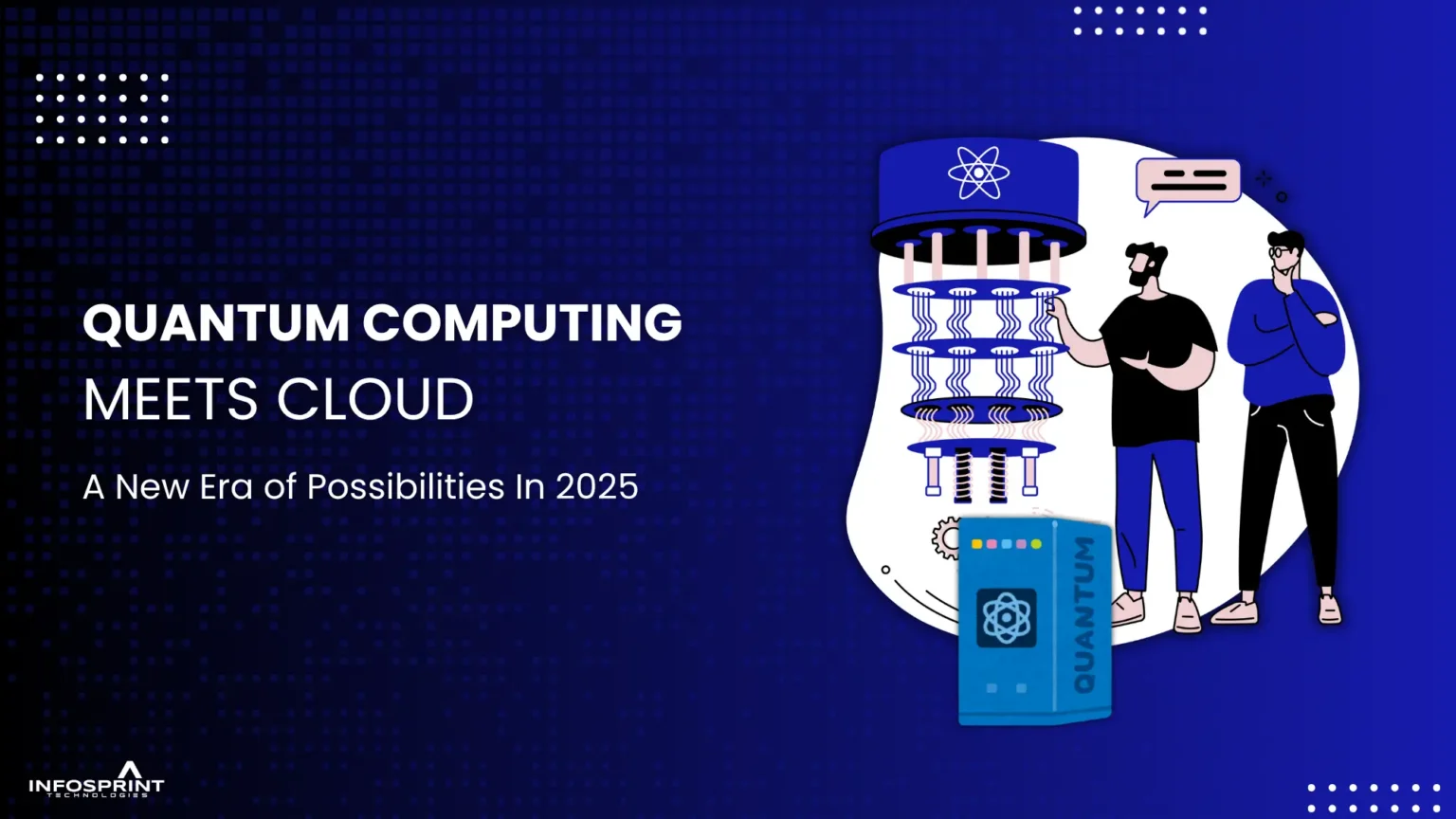Consistent Diagnosis: The Cornerstone of Modern Healthcare
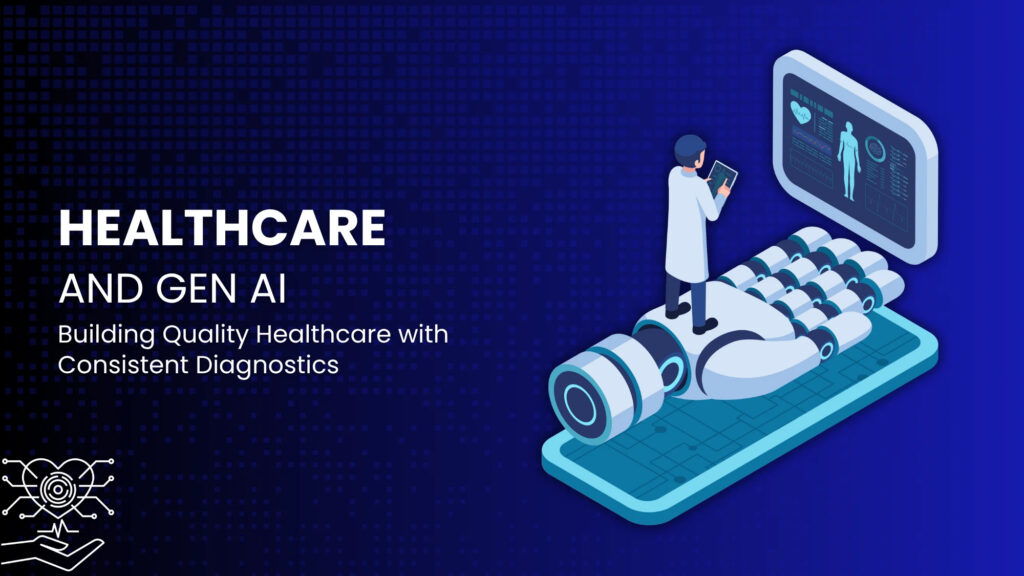
Gen AI (Generation AI) is an emerging application expected to dominate the AI content creation market due to its robust features. These features and applications have opened up new business opportunities and attracted the attention of many industry leaders. Artificial intelligence (AI), particularly generative AI, is revolutionizing various industries, and healthcare is no exception. One of its most promising applications lies in improving the accuracy and consistency of medical diagnoses.
Gen AI digitally transforms healthcare by improving patient care and researching medicines and biochemicals. Gen AI uses range to enhance client satisfaction, reduce R&D costs, streamline clinical operations, provide personalized treatments, and accelerate diagnosis.
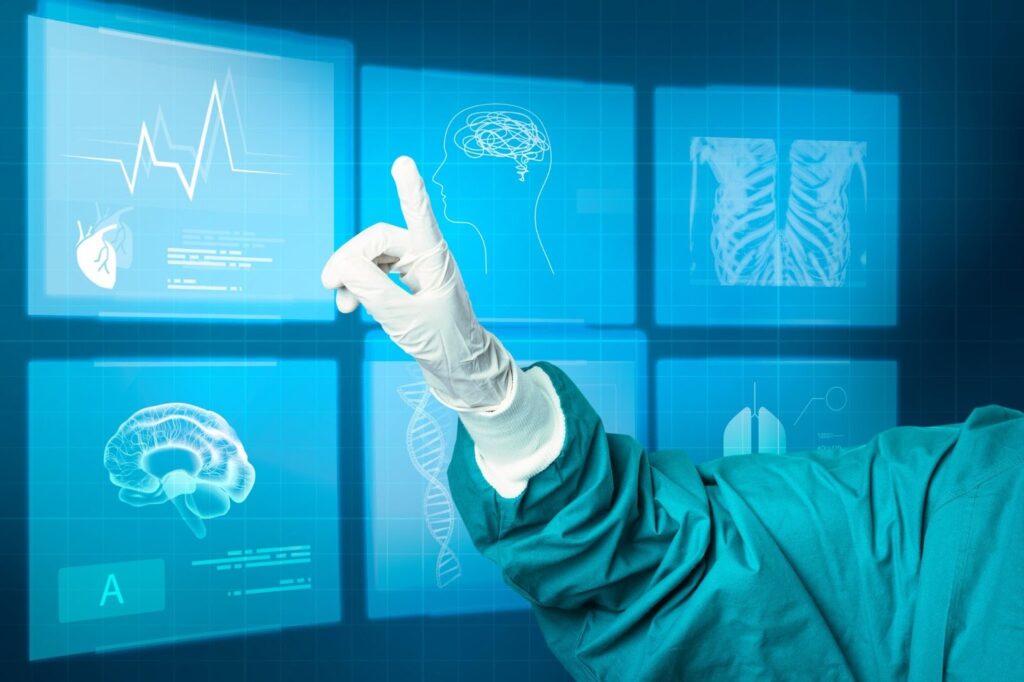
But AI is not all-mighty and cannot answer any questions. Machine learning and artificial intelligence make Gen AI learn from inputs and make decisions from an extensive database, so there are bound to be some miscalculations. The healthcare sector deals with human lives, and even a minor miscalculation can significantly impact their lives. However, this cannot be the cause of the stoppage of the adoption of Gen AI technology.
This blog will explore how the healthcare sector can embrace this technology by providing consistent diagnoses and strategies for integrating into the health sector and prospects. Infosprint Technologies, a leading IT consulting company, offers a comprehensive suite of Gen AI services to help healthcare organizations harness the power of AI.
The Reality of Healthcare Diagnosis
Diagnosis is the foundation of any treatment and solution to adequate healthcare. A physician’s ability to gauge the accurate diagnosis, draft a treatment plan, and prescribe medicines have subsequent implications on patients’ treatment. However, there are a few undermining consistencies in the current diagnostic landscape:
- Subject interpretation: All diagnostic procedures stem from an individual’s understanding of the patient’s problems. The physician consulted uses various tests, such as imaging, pathology, or physical examinations, which could result in a considerable cost burden on the patient. The patient’s problems still need to be gauged effectively.
- Diagnostic Errors: Less accurate information from patients and doctors using outdated diagnostic methods contributes to increased diagnostic errors. These errors are a significant concern in healthcare because they can lead to severe consequences.
- The complexity of modern medicines: With a rapid increase in medical knowledge coming to light every two months, doctors need to stay updated with this vast knowledge. Rising technology also makes doctors make wrong assumptions about diseases(partially). Understanding the patient’s problem and searching from the immense data is time-consuming and can lead to a diagnosis error. Many diseases have similar symptoms, and every factor in diagnosing the problem is crucial, be it software, machines, images, patient input, or the doctor’s knowledge. The volume of available data can lead to oversight or misinterpretation.
- Healthcare disparities: Healthcare disparities are a challenging prospect in diagnosing patients. A multitude of factors hinder the consistency of healthcare diagnosis. One of the significant issues is limited resources in the geographical location, a need for constant medical supplies for a vast population, time-consuming to procure test results to analyze for diagnosing the patients, limited workforce to assist doctors, and
Consistent Diagnosis: Why?
Accurate diagnoses are essential for effective treatment. Diagnostic errors can lead to ineffective treatments, delayed care, or even fatal consequences in extreme cases. Consistency in diagnosis is especially crucial for conditions like cancer, where early detection significantly improves survival rates. Different diagnoses for the same condition can lead to significant changes in patient treatment plans, impacting costs and outcomes.
Consistent diagnosis ensures that:
- Patients receive appropriate treatment: Accurate diagnosis is crucial as it ensures that the treatment is tailored to the patient’s specific condition, reducing the risk of unnecessary treatments or delays in receiving the appropriate care.
- Improved patient trust: Ensuring patients receive accurate and consistent diagnoses is crucial for building confidence in the healthcare system. When patients are confident in their diagnoses, doctors are more likely to participate actively in their treatment plans.
- Reduction in healthcare costs: Inaccurate or conflicting diagnoses can result in the need for more medical tests, treatments, and surgeries. This can significantly increase healthcare expenses for both patients and healthcare systems.
- Reduced healthcare disparities: Access to reliable diagnostic tools is crucial in ensuring patients receive consistent, high-quality care regardless of location. These tools are also essential to bridging the gap between regions with abundant and limited resources.
Empowering Healthcare Professionals: The Role of Generative AI in Diagnostic Accuracy
Gen AI is the perfect solution for a consistent diagnosis with its robust features and scalable services. Here are some of how Gen AI can contribute to an adequate diagnosis:
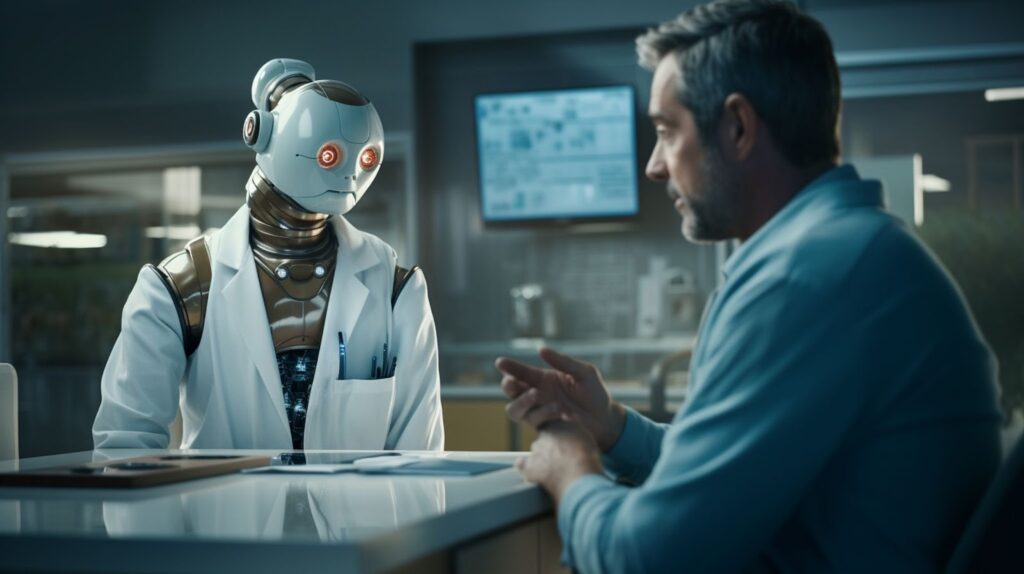
- AI-powered imaging analysis: Medical imaging is vital in diagnosing patient conditions such as tumors, fractures, nervous systems, organ functionality, etc. Even specialized professionals of the same stream interpret the images differently. Gen AI can assist doctors in providing accurate diagnoses of the patient’s condition. Gen AI can be trained to analyze many data, previous cases, and similar situations to various diseases. It will gain deep insights into the conditions missed by the naked eye. AI technology is being utilized to more accurately identify lung nodules, which can be an early sign of lung cancer, in CT scans than traditional methods. This helps minimize the differences in how radiologists interpret the scans, ensuring that patients receive consistent diagnoses regardless of who examines their scans.
- Natural language processing for medical records: Gen AI can help standardize the way medical records are interpreted. Patient symptoms, diagnosis, treatment plan, test results, and historical data are stored in an unstructured format, which can lead to discrepancies when another healthcare provider examines them. An NLP algorithm retrieves the data from electronic health records. It summarizes the patient’s condition, reduces misinterpretation among healthcare team members, and leads to a more uniform diagnosis.
- AI-assisted pathology: Identifying diseases frequently depends on examining tissue samples under a microscope. Pathologists’ analyses can differ significantly, creating inconsistency in diagnosis. This is especially true for intricate diseases like cancer. Generative AI has the potential to help. It can analyze histopathological images and create uniform reports. These Reports Can pinpoint areas of concern. The reports ensure that pathologists start with a consistent analysis baseline, which leads to more precise and reproducible diagnoses.
- Predictive Diagnostics and Early Detection: In diagnostics, one of the most promising aspects of Gen AI is its ability to predict diseases before symptoms become apparent. AI analyzes a patient’s genetic makeup, lifestyle factors, and other data points. This allows AI to identify individuals at risk for certain conditions and recommend early interventions. Gen AI powers predictive models. They can forecast the likelihood of diseases such as Alzheimer’s, cardiovascular disease, and cancer. These predictions are based on patterns found in large-scale datasets, which allow for more precise risk assessments. This Level of proactive care can dramatically improve patient outcomes. Early Detection is often crucial to effective treatment.
- Real-time feedback and second opinions: Gen AI’s most promising feature is its ability to provide real-time feedback and second opinions. Doctors and clinicians can utilize the platform to obtain potential errors or alternative diagnoses based on patient data. Real-time assistance ensures that healthcare providers receive continuous guidance, reducing the chance of diagnostic discrepancies.

Save Weeks of Analysis
Ethical considerations and challenges of using Generative AI in Healthcare
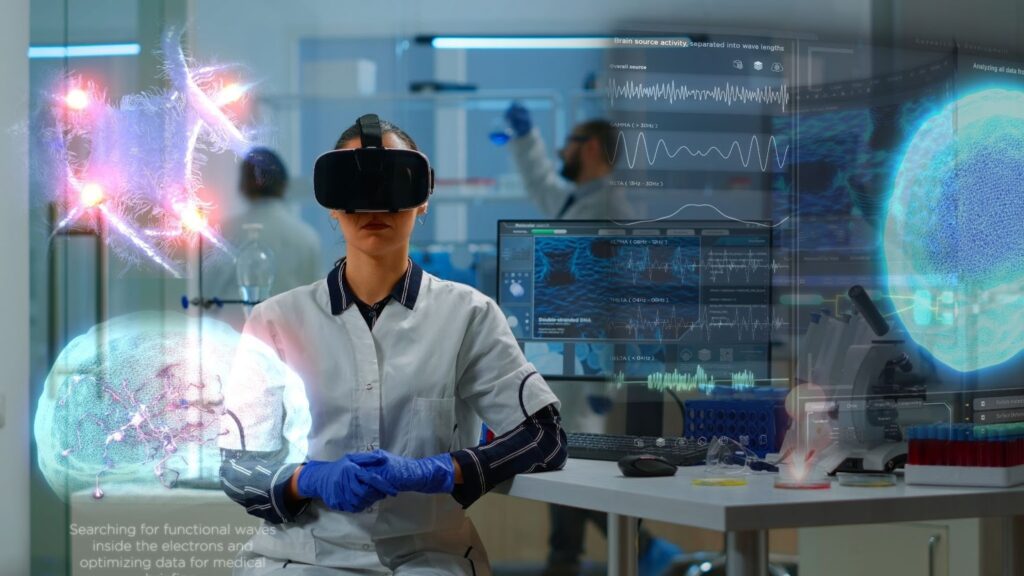
However promising Gen AI is for healthcare, it brings ethical dilemmas. It also creates issues that need addressing and measures that Need implementing. Such challenges arise due to the nature of AI. It requires vast amounts of data. Now, AI uses this data to make decisions. These decisions often need validation by humans. What is a human doing when validating data? What is he saying about one patient? About another? Further in-depth understanding is necessary.
The ethical challenge is now apparent. How do we ensure AI Decisions are ethical? How do we feel safe with AI recommendations? This is no small feat. There are no easy answers.
- Data security and privacy: Patients’ data is susceptible, and Gen AI must store vast amounts of patient information. This could lead to a cyberattack those results in data leakage. It is also crucial that the data is handled ethically. Consent from the patient is mandatory, and protocols for patient privacy must exist.
- Bias in the algorithm: AI diagnosis is based on the data it is trained on; if the data is skewed, it will lead to misdiagnoses. Healthcare professionals must spend a ridiculous amount of time and effort providing the correct data and substantial training in diverse datasets for all demographic groups.
- Integration with healthcare systems: Integrating Gen AI within healthcare systems is challenging. AI must complement the workforce instead of replacing them. Human expertise is necessary. Ensuring that healthcare experts trust AI-driven tools is critical. Understanding Should be required. This is a crucial factor for successful adoption by healthcare professionals.
His integration requires ongoing training and collaboration, which should occur between AI developers and healthcare providers. This is essential to achieving seamless integration.
The Potential of Generative AI in Healthcare Diagnostics
Generative AI is a powerful tool. It can ensure consistent diagnoses, especially in healthcare, by reducing human error and minimizing variability. It also offers real-time assistance. Gen AI has the potential to change the diagnostic landscape, but it requires thoughtful integration, considering ethical challenges, data security, and the need for diversity in training data.
When used responsibly, AI can help bridge gaps in healthcare access. It can also improve patient outcomes and standardize diagnostics across regions and populations. Partnering with Infrosprint Technologies accelerates your healthcare digital transformation by confidently embracing Gen AI to improve patient care, enhance efficiency, and drive innovation.
Related Posts


Top 10 Cloud Computing Technologies to Look Out for in 2025
